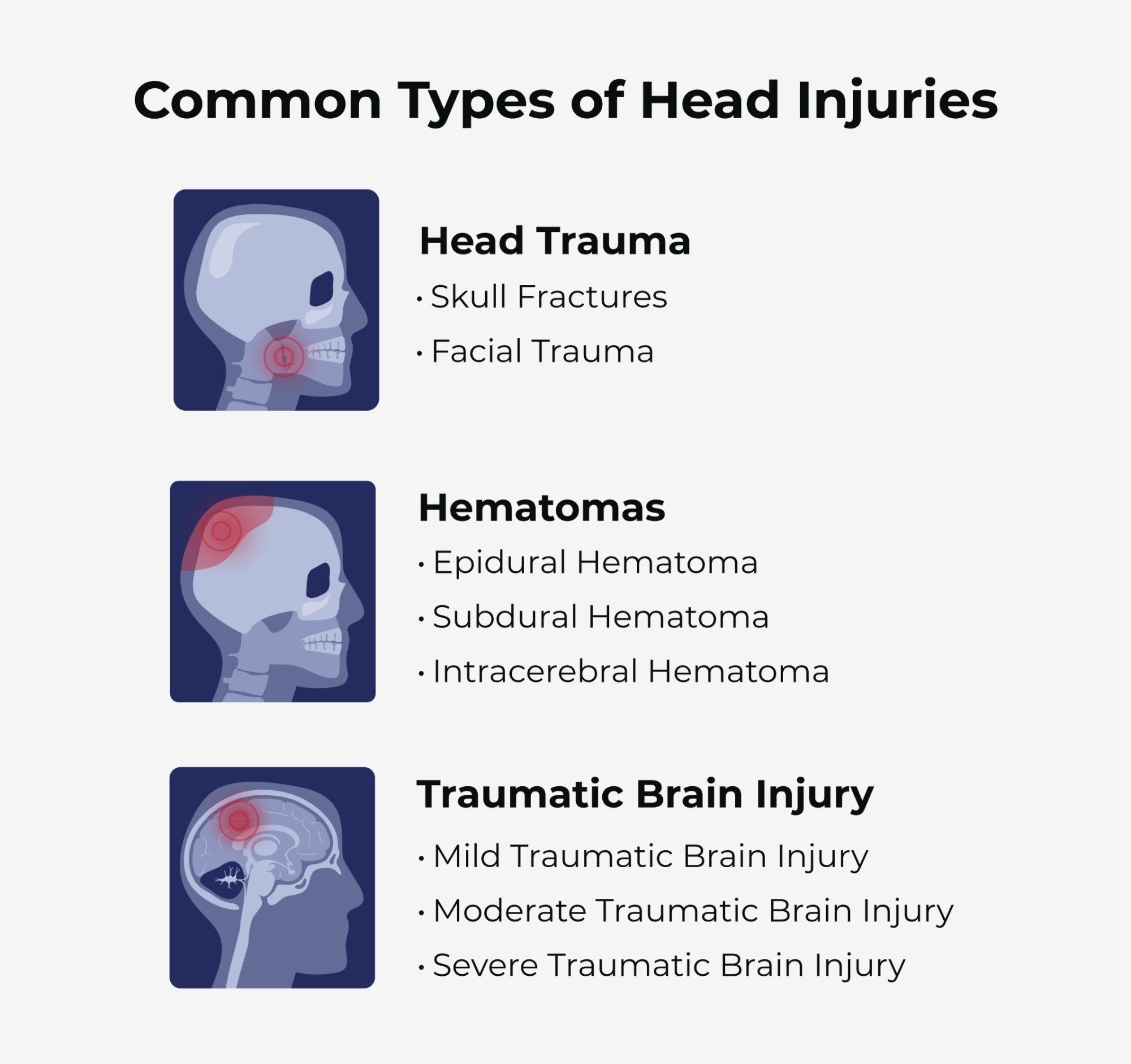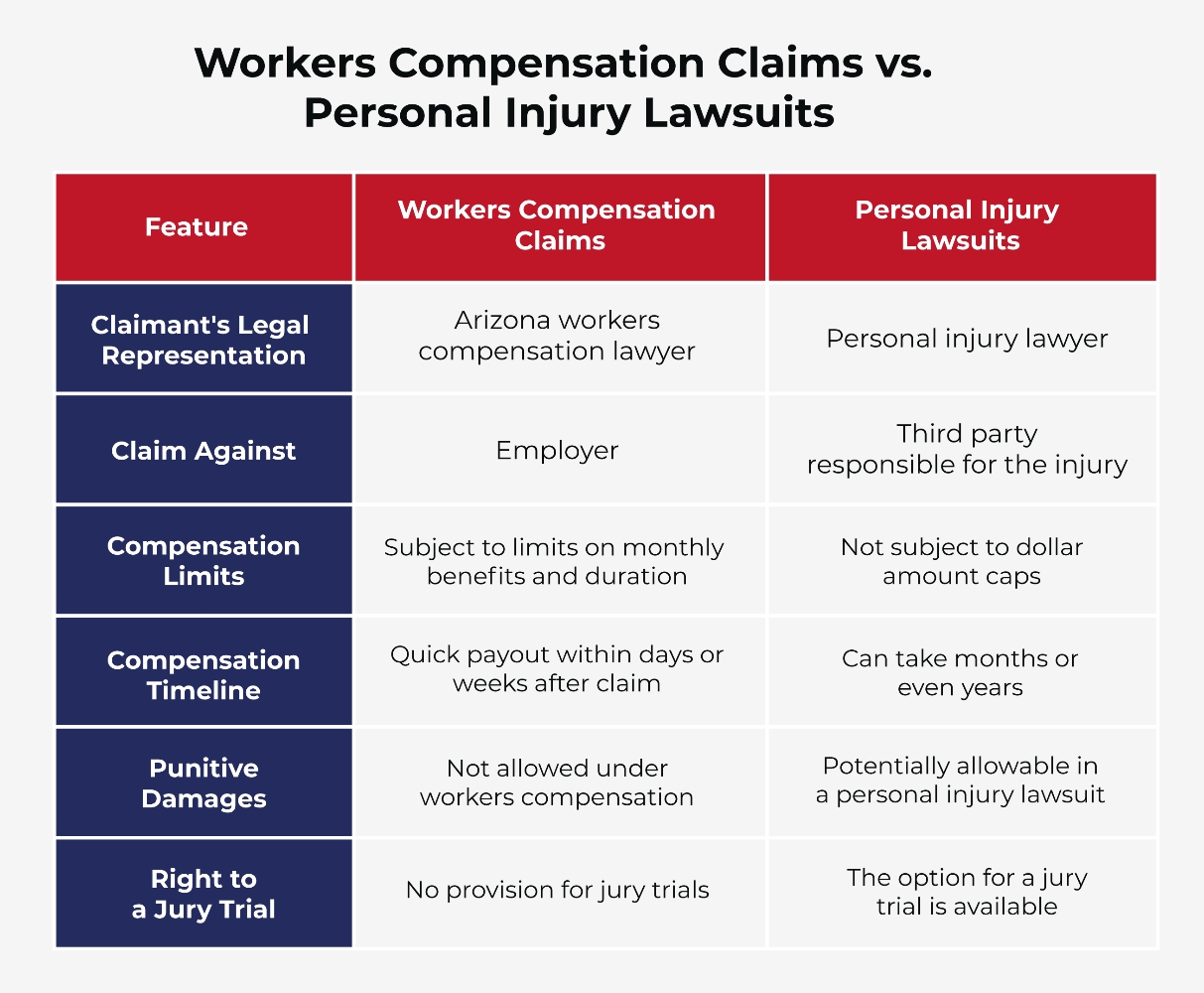Workers’ Compensation Head Injury Settlements
Every year, millions of Americans, including thousands of Arizona residents, suffer head injuries. Many of these injuries happen in connection with employment—head injuries are among the most common work-related injuries you can experience. Indeed, of the most common sources of job-related injury, head injuries can result from five of them:
- Slips and fall accidents
- Being struck by a falling object or by equipment
- Being injured as a passenger or driver in a work-related car accident
- Being exposed to an explosion at work
- Being subject to violence at work from other persons or by animals
If you have suffered any kind of head injury at work in Arizona, our team of experienced and passionate workers’ compensation attorneys at the Fendon Law Group can help you to understand your options when it comes to receiving fair compensation for a brain injury claim for workers’ comp head injury settlements. Call the Fendon Law Group today at (602) 562-9111 to schedule a free consultation.
You can suffer a head injury in any line of work. Some occupations are more at risk than others:
- Construction industry workers
- First responders (firefighters, police officers)
- Professional athletes, including race car drivers
- Warehousing, delivery, and dock workers
Although some head injuries at work can be minor and require little or no treatment or time lost from work, others can be severe enough to cause you to lose the ability to work or, in the worst case, to lose your life.
What are the Types of Head Injuries?
We can break head injuries into three main types: head trauma, hematomas, and traumatic brain injury.

Head Trauma
Head trauma injuries are those that affect the head but not the brain. Skull fractures and facial trauma are examples of head trauma injuries.
Skull Fractures
A skull fracture is a break in the skull bone. Minor fractures may require little treatment, but skull fractures that cause part of the skull to depress into the brain or a skull fracture caused by a penetration of the skull can be serious and require surgery to treat.
Skull fracture symptoms can include any of the following:
- Headaches
- Dizziness and confusion
- Memory loss
- Fatigue
- Loss of consciousness
- Swelling
- Bruising under the eyes or behind the ears
- Bleeding from the head, including clear fluid from the ears or nose
- Seizures
Facial Trauma
Facial trauma injuries can be skull fractures or soft tissue injuries. Bone injuries can include midface broken bones, broken eye sockets, a broken jaw, and broken or missing teeth. Soft tissue injuries include lacerations, avulsions, scrapes, and facial burns, and occipital neuralgia, a condition that causes severe headaches.
In the workplace, the most common causes of facial trauma are car accidents and physical assaults.
Facial trauma injuries can result in a disfigured appearance, but they can also have more serious functional effects including damage to your tongue, salivary glands, and nerve endings. These can affect your ability to speak, bite, chew, drink, smile or even blink.
Hematomas
A hematoma is a blood clot that forms on or inside of the brain. Doctors recognize several kinds of hematomas, depending on the location of the blood clot. An epidural hematoma is a blood clot on the outside of the brain between its outer protective covering and the skull. A subdural hematoma is a blood clot that forms between the brain’s outer protective covering and the brain itself. And an intracerebral hematoma—also known as a contusion—is bruising of the brain.
Epidural Hematoma Symptoms and Treatment
Loss of consciousness episodes are a signature of an epidural hematoma. You may lose consciousness briefly, then regain and lose it again. Other symptoms include confusion, dizziness, drowsiness, severe headaches, nausea, vomiting, weakness in a part of the body, and seizures.
An epidural hematoma is an emergency medical condition that often requires surgery to treat. Recovery can take years and may not be complete.
Subdural Hematoma Symptoms and Treatment
Subdural hematomas manifest themselves through symptoms including steadily worsening headaches, nausea, confusion, drowsiness, blurred or double vision, seizures, problems walking, falling, and loss of consciousness.
One challenge of diagnosing a subdural hematoma is that its symptoms can resemble other conditions, including strokes or dementia. Treatment usually requires surgery. Recovery can take place in a few months, but sometimes full recovery may take years. In the worst case, you could be left with a permanent disability.
Intracerebral Hematoma Symptoms and Treatment
An intracerebral hematoma is a serious medical condition that requires immediate medical treatment. Its symptoms include sudden weakness, tingling, or paralysis in the face or an arm or leg, especially if it happens on only one side of your body, blurred vision in one or both eyes, confusion, apathy, sleepiness, lethargy, nausea, and vomiting.
Short-term treatment for an intracerebral hematoma includes surgery. Longer-term treatment can involve prescribed medications, physical therapy, speech therapy, and occupational therapy.
Traumatic Brain Injuries
Traumatic brain injuries are frequently occurring work-related injuries in Arizona. Some estimates are that nationally, six of every ten brain injury claims for workers’ compensation include a traumatic brain injury claim.
Causes of Traumatic Brain Injuries
The most common causes of a traumatic brain injury are slips and falls, being struck by an object, equipment or another person, and car accidents. More than 80 percent of medical bills to treat traumatic brain injuries come from one of these causes.
Symptoms of Traumatic Brain Injury
The most frequently encountered kind of traumatic brain injury is a mild concussion, but concussion injuries can also be severe and require medical treatment including hospitalization. Common mild traumatic brain injury symptoms include:
- Headaches. The more severe and persistent the headache, the greater the likely severity of the concussion is.
- Nausea. Similar to headaches, a nauseous feeling that persists or is accompanied by vomiting are signs of a more serious concussion injury.
- Fatigue and dizziness. These are common symptoms of a mind concussion.
Physical symptoms of a severe traumatic brain injury include:
- Dilated pupils in either or both eyes.
- Fluid leaking from your nose or ears.
- Slurred speech.
- Convulsions or seizures.
- Loss of consciousness or coma.
- Behavioral changes.
These brain damage symptoms may appear right away after a traumatic brain injury, or they can manifest slowly over the days and even weeks afterward.
Post-Concussion Syndrome
Post-concussion syndrome describes a condition that can happen when concussion symptoms last longer than usual, up to a year or longer. If your concussion symptoms persist for more than a few months, then your doctor might diagnose you with post-concussion syndrome.
Post-concussion syndrome can be challenging to diagnose because its symptoms are effectively the same as a mild traumatic brain injury. Proving the existence of this syndrome for workers’ compensation settlement often takes multiple forms of evidence, including your treatment records, witness statements, and keeping a journal of your symptoms over time. These will help to show the nature of your concussion injury, how long it has lasted, its effects on your ability to work and to perform normal life activities, and the treatments you have already received and may expect to need in the future. Your traumatic brain injury lawyer can help you to gather the proof you need to reach a fair traumatic brain injury settlement.
Diagnosing Head Injuries
Because head injuries take several forms, properly diagnosing what kind of head injury you received at work and its severity can take time and require referral input from multiple medical specialists. These can include your primary care doctor, an emergency room doctor who may have treated you, plus other specialists like a neurologist, neuropsychologist, neurosurgeon, and speech pathologist.
Head injury diagnosis can also require you to undergo some diagnostic tests and procedures, like neuropsychological testing, x-rays, an electroencephalogram, magnetic resonance imaging, and a computed tomography scan.
Head Injury Treatment
The kind of medical treatment you receive for a head injury depends on the nature and severity of the injury. Minor head injuries may require only short-term outpatient treatment with a settlement value of a few hundred or a few thousand dollars. Severe head injuries, like a traumatic brain injury, can require prolonged hospitalization, surgery, medications, and one or more kinds of rehabilitation treatment or therapy.
Traumatic brain injury treatment is frequently expensive, with medical expenses coming fast and heavy. Recovery often requires hospitalization, and some brain injury cases may require surgery. Inpatient treatment, a medical stay, can last for 30 days or longer, especially if you are in a coma or need surgery or mechanical ventilation. Inpatient facility care is the biggest single medical expense item associated with traumatic brain injuries.
Long-term treatments for a traumatic brain injury can add even more to your recovery costs. These include costs of medications, rehabilitation, vocational training, and possibly nursing or at-home caregiver expenses.
The total cost to treat a traumatic brain injury can easily reach six figures in the first year alone. The lifetime cost can add up to millions of dollars. The only other workers’ compensation claims that come close to matching traumatic brain injuries in terms of cost of treatment are herniated discs that result in spinal fusion surgery, amputations, and burn injuries.
In many cases, these treatment costs can exceed your employer’s workers’ compensation policy maximums. If a personal injury lawsuit option exists for you in connection with a traumatic brain injury, then this may be a better choice because personal injury lawsuit awards are not subject to workers’ compensation policy caps.
Here are some of the kinds of treatment you could receive for a head injury, with some details about each.
Hospitalization
In-patient medical care at a hospital can involve any kind of emergency care, intensive care, surgery, specialist treatment, and regular care. The duration of your stay may be as short as a day or two for observation after a minor head injury to a stay lasting a month or longer if you have a brain injury that is severe.
Medications
Your Arizona workers’ compensation settlement can include medications that are part of the treatment plan for your head injury, including blood thinners, pain relief medications, muscle relaxants or anticonvulsants, antianxiety and antidepressant drugs, or stimulants.
Follow-Up Treatment
Once you are through with any hospitalization that may be needed and your head injury has stabilized, your treatment will move into its follow-up phase. What this will involve and how long it will last depend on the severity of the underlying injury. Here are some of the kinds of follow-up treatment you may need as part of your workers’ compensation settlement that includes future medical expenses:
- Follow-up doctor visits.
- Rehabilitation appointments (for example, chiropractor appointments or acupuncture treatments, and vocational rehabilitation).
- Therapy sessions (for example, physical therapy, vision therapy, occupational therapy, massage therapy, speech therapy, cognitive therapy, and mental health counseling).
Other Remedies for Work-Related Head Injury Claims
If you suffer a head injury at work, you will need to identify which options are available to you to pursue a fair brain injury settlement for your medical costs, lost wages, and other compensation.
Most of the time, if you are working with an experienced Arizona workers’ compensation lawyer, a workers’ compensation settlement will be enough to serve your medical treatment, rehabilitative, and therapeutic needs.
In some situations, however, circumstances might point you toward a personal injury lawsuit for proper compensation.
The starting point for consideration is that in Arizona workers’ compensation is based on a “no fault” system. This means that if you accept a workers’ compensation settlement with your employer’s insurer, then you cannot sue your employer for your injury, including for claims of ordinary negligence. The advantage to you under a no-fault system is that you do not need to prove that you were harmed like you would if you sued your employer for personal injury.
The advantage to your employer is that it is free from the threat of having to defend against employee personal injury lawsuits.
In some circumstances, however, the conduct of an employer, a co-worker, or some other person can be wrongful enough that a workers’ compensation claim may not be sufficient to address the harm done to you as a result. In these situations, a personal injury lawsuit may be the better remedy for you.
Arizona Requirements for a Personal Injury Lawsuit
Harmful conduct by your employer that is intentional is one way that a personal injury claim can become available to you.
Another possibility is behavior by your employer that is so neglectful that it rises above the level of simple negligence, like knowingly requiring you to work in an unsafe work environment and doing nothing to safeguard you from the harm that is likely to come from it.
Third-Party Personal Injury Claims
Sometimes your injury at work can be caused by someone other than your employer. For example, a hostile coworker might physically assault you, or you could be injured in a motor vehicle accident while driving for business purposes and another driver caused the accident, or a trespasser can come onto your employment premises and cause you harm.
Another example of third party liability for a workplace injury is if your employer owns equipment that is defective by design or in its manufacture, and because of that you are injured.
Note that workers’ compensation claims and third party personal injury claims are not exclusive. You can pursue both a workers’ compensation claim with your employer’s insurer and a third party personal injury lawsuit against others because of their fault in causing the accident.
Differences Between Workers’ Compensation Claims and Personal Injury Lawsuits
Whether you have a good claim for a personal injury lawsuit against your employer or against a third party is something your Arizona workers’ compensation lawyer can help you to decide.

Some additional considerations to go over when making your decision include:
- How much money you can receive: Arizona workers’ compensation claims are subject to limits on how much you can receive in monthly compensation benefits and for how long. A personal injury lawsuit is not subject to dollar amount caps on how much you can receive in compensatory damages.
- When you can receive your compensation: Workers’ compensation medical cost reimbursements and monthly benefits can begin to pay out for you quickly, within a matter of days or weeks after you make your claim. Even if there is a dispute with your claim, it can usually be resolved in a few months at most. A personal injury lawsuit, on the other hand, is not only less certain in its outcome—if you lose, you may receive nothing—but because Arizona is a comparative fault state, if you do win your award can still be reduced if you are found to be partly at fault for the injury-causing event at work. A personal injury lawsuit can take months or even a year or more to settle or to reach a verdict, and during this time you will not be receiving any of the damages you are claiming.
- Punitive damages. Similar to damages for pain and suffering, punitive damages are not allowed under an Arizona workers’ compensation claim, but they can be allowable to a successful personal injury lawsuit plaintiff.
- Right to a jury trial. Because a central purpose of workers’ compensation is to avoid the need for employee personal injury lawsuits against employers, Arizona’s workers’ compensation system makes no allowance for taking a claim to trial. An administrative law judge can preside over some claims, but there is no workers’ compensation equivalent to being able to have your claims—especially those for emotional or mental distress or for punitive damages—considered by a jury of your peers.
Factors that can Influence Workers’ Comp Head Injury Settlements
As we have seen, the main factors that influence how much you can receive from a head injury workers’ compensation claim in Arizona are the severity of the injuries, the amount of medical bills you incur to treat them, your lost earning capacity, and any emotional pain and suffering you may have experienced as a result of the accident.
Here are some additional factors that can come into play when calculating how much you might receive through Arizona workers’ compensation:
- The duration of your injuries. The longer they last, the more compensation you are likely to see.
- Whether the workers’ compensation insurer disputes any part of your claim.
- What your average monthly earnings were before the injury.
- The likelihood that you will have ongoing treatment, therapy, or rehabilitation costs in the future.
- Transportation costs you incur traveling to and from medical or other treatment.
- Whether, when, and in what capacity you can go back to work.
- Your life expectancy. The younger you are the higher the potential value of your claim.
- Whether you suffered any other injuries in the accident.
- Whether you have any other sources of benefits or income, like Social Security disability benefits, that compensate you for the disability.
Because head injuries—and particularly a traumatic brain injury—can be so expensive to treat, in the insurance industry they are often referred to as “mega claims.” With any mega claim, you can expect your employer’s workers’ compensation insurance company to closely scrutinize it for mistakes like missing an important deadline (for example, not notifying your employer of your injury, or missing the Arizona statute of limitations to file your claim).
You can also anticipate that the insurer will look carefully at the specifics of any brain injury symptoms, seeking ways to argue that your injuries are not as severe as you claim. These tactics can include questioning whether there really is a work connection to the brain injury, having you undergo an examination by an independent medical examiner that the insurer knows will likely minimize the severity of your brain injury and its symptoms, or trying to use your medical history against you (for example, by claiming that your current symptoms are related to a pre-existing injury or medical condition).
Why You Should Have an Arizona Workers’ Compensation Langer On Your Side
Arizona does not require you to have an attorney to file a claim for workers’ compensation benefits. If your claim is very small based on a superficial injury that requires minor outpatient treatment and does not make you miss work, then you might not need a lawyer.
As we have seen above, however, head injury accidents at work are often serious and long-lasting in their health, employment, and lifestyle consequences, and can be hideously expensive to treat in the short term and in terms of paying for future medical care.
The more serious your head injury claim is, like with traumatic brain injury cases, the more likely it becomes that your employer’s workers’ compensation insurance company will look for ways to minimize your brain injury compensation. This will almost always involve using attorneys and medical experts to look for ways to attack your claim.
It’s in these situations, when so much is at stake not only to you but also to your loved ones, that having a workers’ compensation lawyer from the Fendon Law Group can be critical to the success of your outcome.
Our attorneys have years of experience helping brain injury victims like you who have been injured on the job to realize the best brain injury settlement possible. We know the tactics that insurance companies use to try to deny or minimize often traumatic brain injury settlements for a head or brain injury, and how to counter them.
In addition to making sure your head injury benefits claim is carefully prepared and thoroughly supported by evidence, we will also negotiate your traumatic brain injury case with insurers on your behalf so you do not get taken advantage of.
And if you have a claim for injuries sustained in connection with your workplace injury, we will help you to prepare and pursue your case for damages against any liable third parties.
Remember, workers’ compensation insurers are for-profit businesses first and foremost. Their main concern is not to see that you receive everything you need in treatment and compensation, but to make money. They only see you as a charge against their bottom line. A cost to be reduced as much as possible, if it cannot be avoided altogether.
This is why you need a Fendon Law Group workers’ compensation attorney to stand up for you. Because no one else in the workers’ compensation system—not your employer, or its insurer, or the system itself—is on your side when it comes to protecting your interests.
Call us today at (602) 562-9111 to speak with one of our Phoenix workers’ compensation lawyers in a free initial consultation. We will help you to understand the nature of your injuries and your rights under Arizona workers’ compensation. If you need to make an initial benefits claim, we will help you to prepare it. If your initial claim has been denied, we will help you to file an appeal.
And if any third party may be liable to you in part for your workplace injury, a Fendon Law Group personal injury lawyer will help you to identify them and to pursue your personal injury claims against them.
Remember, you must act quickly to preserve your rights to either a workers’ compensation settlement or to a personal injury lawsuit. Don’t wait until it is too late. Call the Fendon Law Group today. (602) 562-9111. Or, if you prefer, reach out to us online to schedule a free consultation or to ask one of our workers’ compensation lawyers a question about your work-related injuries.




















